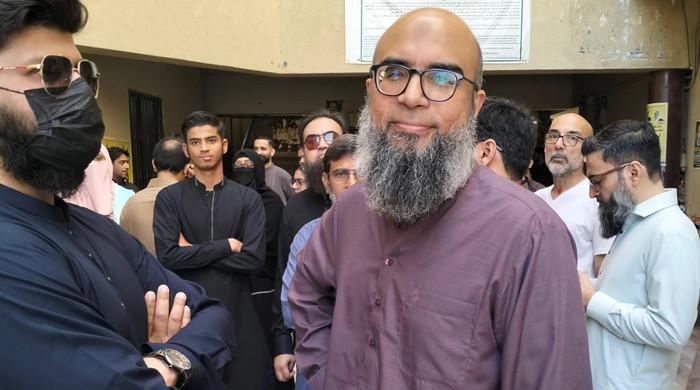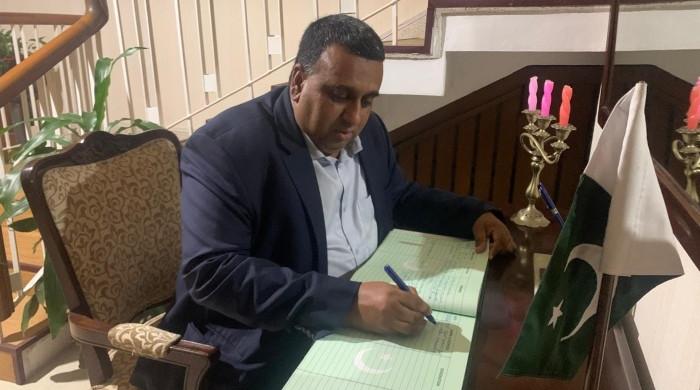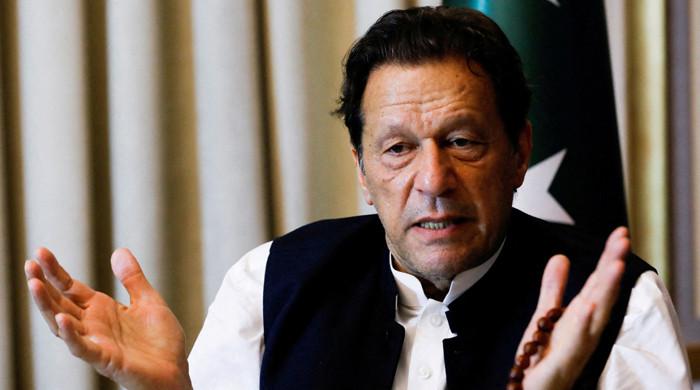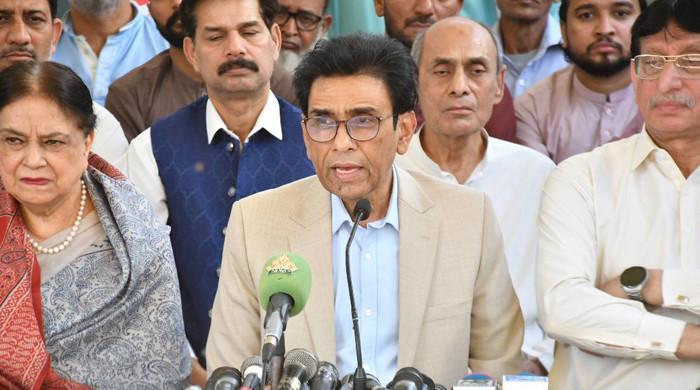Will 'act according to law', says NA Speaker Asad Qaiser on no-confidence motion
MPs cannot be stopped from casting votes during no-trust motion session, Asad Qaiser informed
March 14, 2022
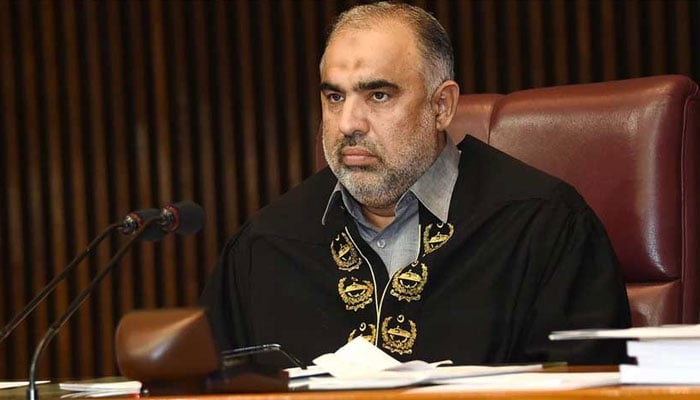
- Speaker still consulting NA secretariat about summoning the session.
- PTI mulls multiple options to stop members from voting against PM.
- NA legal dept informed MPs cannot be stopped from casting their votes.
National Assembly Speaker Asad Qaiser said Monday he would follow the law during the voting on the no-confidence motion after the Opposition took strong exception to his remarks about the possibility of failure of the no-confidence motion against PM Imran Khan.
In a conversation with journalists in Islamabad, the NA speaker said the no-confidence motion was the Opposition's constitutional right, but he did not specify a date for the session.
"I will follow the law; I am still in consultation with the NA secretariat about summoning the session and it will be called in line with the constitution," the speaker said.
Read more: Imran Ismail fails to get clear response on MQM-P's support regarding no-trust motion
MPs can’t be stopped from voting, Qaiser told
The speaker's statement came after he held a meeting with the NA's legal department to seek an opinion regarding the voting of disgruntled members of the party, Geo News reported, citing sources.
According to sources, the speaker was informed that none of the members can be stopped from casting their votes, however, the party can take action against those who violate its policy.
They further added that citing Article 63(1)A of the Constitution of Pakistan, the legal department said the law is very clear in this regard.
Sources said that the speaker also asked whether he can give a ruling on the disgruntled members before they cast their votes, to which he was informed that ruling was his prerogative but the relevant laws are very much clear and there's no confusion.
In response to Asad Qaiser’s query that whether he can take action against the suspicious members if the party shared their names, the department said that the speaker’s role starts after a formal declaration from the party chairman.
It is pertinent to mention here that on March 8, the Opposition had submitted the no-confidence motion against Prime Minister Imran Khan in the National Assembly Secretariat.
A total of 86 lawmakers from the Opposition parties have signed the no-confidence motion, seeking the removal of PM Imran Khan.
Since then the government is mulling options on how to stop their party members from voting against the policy.





